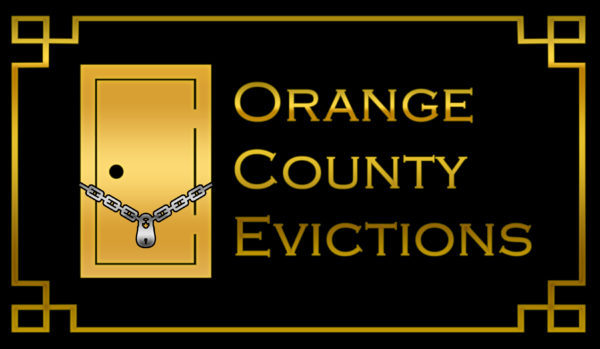Landlord Tenant Legal Terms and Definitions:
3-Day Notice: See the applicable “Three-Day Notice” below.
30-Day Notice: The notice used to alert a tenant of the landlords intent to terminate the tenancy. A 30-Day notice is required for tenants who have occupied the premises for less than one year.
60-Day Notice: The notice used to alert a tenant of the landlords intent to terminate the tenancy. A 60-Day notice is required for tenants who have occupied the premises for a year or more.
Answer: The legal response by a tenant to an Unlawful Detainer lawsuit.
Contested Case: A case where the tenant has filed an answer to the lawsuit, or filed a motion questioning some possible deficiency in the lawsuit or the service of the summons and complaint.
Eviction: The result of a court proceeding used by a landlord to remove a tenant from a property because he violated the rental agreement or refused to leave after a notice to end the tenancy. Also known as an unlawful detainer.
Fixed Term Tenancy: Property is rented for a fixed period of time, such as a year or more, and is normally formalized with a written lease.
Holdover Tenant: When a tenant continues to occupy the premises after the tenancy has been terminated.
Lease Agreement: Generally it’s a rental agreement that lists a specific expiration date or the total amount of rent to be collected for the term. The most common is a one-year lease, specifying that rent is due each month.
Nuisance: Bothersome activities under the tenant’s control which interferes with the neighbors’ use and enjoyment of their property.
Periodic Tenancy: A tenancy for an unspecified period of time, where rent is paid each period, such as each month. The notice given is required to be the same as the period of rent. A fixed term tenancy becomes a periodic tenancy after the expiration of the fixed term if rent is accepted beyond the fixed term expiration. For example, at the expiration of a one-year lease where the tenant was paying rent each month, if the landlord accepts rent past the lease expiration it becomes a month-to-month periodic tenancy.
Prejudgment Claim of Right of Possession: Used to give unnamed occupants notice that there is a lawsuit to determine who has a right to possession of the premises. Only a sheriff, marshal, or process server can serve this along with the summons and complaint.
Proof of Service: a procedure used to give legal notice to someone. Depending on the type of legal notice, the law dictates who, where, and how the notice is allowed to be served. Some notices need to be filed with the court, and a form known as a “Proof of Service” is filled out by the person who served the notice and filed with the clerk.
Rental Agreement: Unlike a lease for a set term, a rental agreement is used in a periodic tenancy.
San Diego Eviction Law: a part of the San Diego Municipal Code provides that for tenants who have occupied the premises for two years, the landlord must include the reason which justifies the eviction in the eviction notice. This is known as a “Just Cause” statute.
Summons: A legal order served on a person requiring that they appear in court.
Tenancy: The use of a property by one person, which belongs to another person, formalized in a rental agreement or lease, depending on whether it’s a periodic tenancy or a fixed term tenancy.
Three-Day Notice to Pay or Quit: The notice given to the tenant to pay rent due or vacate the property and the tenancy will be terminated.
Three-Day Notice to Perform Covenant or Quit: The notice given to a tenant who is in violation of the lease to remedy the violation or vacate the property and the tenancy will be terminated.
Three-Day Notice to Quit: An unconditional notice given to tenant demanding they move out and return the premises to the landlord. This notice is appropriate only if a few situations, such as illegal use of the property.
Uncontested Case: A case where the tenant has failed to respond to the unlawful detainer summons and complaint in allowed time.
Unlawful Detainer: A summary proceedings lawsuit used by a landlord to recover possession of their premises. The Unlawful Detainer Complaint can be filed after the tenant fails to respond to the eviction notice within the allowed time.
Waste: Permanent harm done to a property by a tenant.
